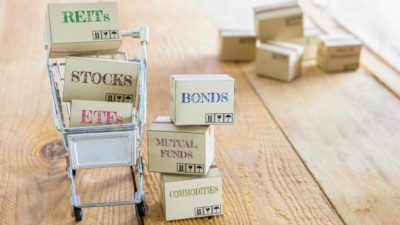Since I originally hail from rural Alberta, I’ve met quite a few farmers. And as I’ve talked to them over the years, I get one overwhelming impression — it’s tough to be a farmer.
The cost of machinery continues to go higher, much to the delight of Rocky Mountain Equipment (TSX: RME) shareholders, Western Canada’s largest group of farm machinery dealerships. Fuel, which is a huge cost of running a farm, also continues to creep up, with many provinces facing record high gasoline prices.
The price of the underlying crop is also affected by things outside of a farmer’s control, meaning a bumper crop in one part of the world can push down prices here. And the price of fertilizer — which most likely comes from either Agrium (TSX: AGU)(NYSE: AGU) or Potash Corp. (TSX: POT)(NYSE: POT) — remains stubbornly high.
Of course, there are good things about farming. The tax breaks are tremendous. Grain farmers are in the enviable position of essentially being able to take it easy all winter. And when the weather cooperates, it can be a very lucrative profession.
I was recently chatting with a couple who have a farm in rural Saskatchewan, and they made a surprising announcement.
They sold the farm.
They subdivided the land so they could keep the family house, but the farmland is gone. It was sold to a recent Asian immigrant, who immediately offered to lease the land back to the original owners at a cap rate of less than 3%.
As they told me, “we can lease the land for practically nothing, invest the sale proceeds, and are pretty much guaranteed to make more than what it costs to lease the land. We have no obligation to renew the lease every year, and the cost to lease the land is tax deductible. Oh, and we don’t have to pay land taxes anymore.”
It’s a good time to be getting out of Saskatchewan farmland. Prices soared 28.5% in 2013, and are up 89% since 2010. Even across the country, prices increased 22% in 2013. This increase was fueled in part by low interest rates, farmers flush with cash after 2013’s record yields, strong grain and beef prices, young producers moving back into the business, and general optimism about the industry.
And while I share some of this optimism — after all, the world’s population keeps going up, and needs to be fed — I can’t help but be wary of a bubble.
Over the past handful of years, the weather has largely cooperated with Canadian farmers. 2013 was a ridiculously good year for the prairies, but even the few years before that were pretty good. People have short memories, and farmers are especially skilled at blocking out the bad years.
But what happens when the law of averages swings back the other way and farmers get a few years of subpar crop yields? Most farmers shrug and continue farming, knowing good times will soon be back. But what about farmers who expanded aggressively? Will they be able to continue to make the payments on all this land bought at the top of the market?
Much like condo markets in large Canadian cities, new investors are starting to flood into farmland, and many are content with sub 3% yields. Many of these investors have little idea about the economics of farming. It’s simply a play on farmland. But as any experienced real estate investor will tell you, real estate investing is all about cash flow. Capital appreciation is simply a bonus. Yet anybody who gets into farmland now is betting on appreciation. There isn’t any cash flow.
Foolish bottom line
My friends the farmers will likely continue to lease the land for years to come. They’ve been in the business for their entire adult lives, and continue to enjoy it. Investors who speculate on farmland may end up losing money, but there will still likely be demand to lease the land. Farm operations aren’t likely to see much change.
But still, I’d encourage investors looking for a way to invest in farmland to stick to the companies that service farmers, and avoid buying physical land. Prices have just gone up too far, too fast.







